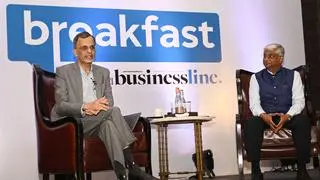UK Prime Minister Rishi Sunak is scheduled to be in India on a four-day official visit this month-end, during which he and Indian Prime Minister Narendra Modi may try to take a “political call” on a handful of crucial issues stalling the India-UK Free Trade Agreement to save it from being “indefinitely delayed”, sources tracking the matter have said.
While much of the FTA has been agreed upon, with as many as 19 of the 26 chapters already sealed, there are areas that the negotiators have been finding difficult to iron out, including intellectual property rules, rules of origin, access for UK professional services, final duty cuts for Scotch whisky and automobiles and liberalising visas for professionals in the UK.
Political decision needed
“The free trade deal is stuck on just a handful of issues where a decision would now have to be a political call. If the two PMs decide to settle the matter during Sunak’s visit, we could have the FTA immediately. Otherwise it will go back to the negotiators and it can be anyone’s guess how long it would take to get resolved. One must also not forget next year’s elections in both countries. The FTA needs to be saved from indefinite delay,” a person close to the negotiations told BusinessLine.
Flexible itinerary
Sunak, during his stay in India, is scheduled to visit Delhi and Mumbai and may also include Chennai in his itinerary if time permits, the source said.
“We do not yet know how much time the talks on the India-UK FTA would take in Delhi and Mumbai. Sunak’s schedule in India is therefore a bit flexible,” the source added.
Before Sunak’s scheduled visit, negotiators from both sides tried to make some last-minute efforts to bridge gaps in the difficult areas. Commerce Secretary Sunil Barthwal is in London to talk to UK officials to take forward the negotiations as much as possible.
FTA uncertainty
IPR is a tricky area as the UK wants to give more protection to its industry, especially the pharmaceutical sector, beyond what exists under the WTO TRIPS agreement. India, however, does not want to agree to any provision that could extend patent life or give other flexibilities that could affect its generic producers.
Differences also continue on ROO, which are rules determining the level of processing and value addition that needs to be done in an FTA country for duty benefits. The UK believes the ROO being sought by India is stringent and will impede access to several British goods, especially automobiles, to the Indian markets.
The UK also wants access to its professional services such as legal, banking and insurance, which India is not very sure about, while the UK is not ready to negotiate professional visa liberalisation.
Sources said there is also back and forth between the two sides on duty cuts by India for Scotch whisky and automobiles. The UK not only wants deeper cuts but also its implementation over a shorter period, but India is resisting.








Comments
Comments have to be in English, and in full sentences. They cannot be abusive or personal. Please abide by our community guidelines for posting your comments.
We have migrated to a new commenting platform. If you are already a registered user of TheHindu Businessline and logged in, you may continue to engage with our articles. If you do not have an account please register and login to post comments. Users can access their older comments by logging into their accounts on Vuukle.